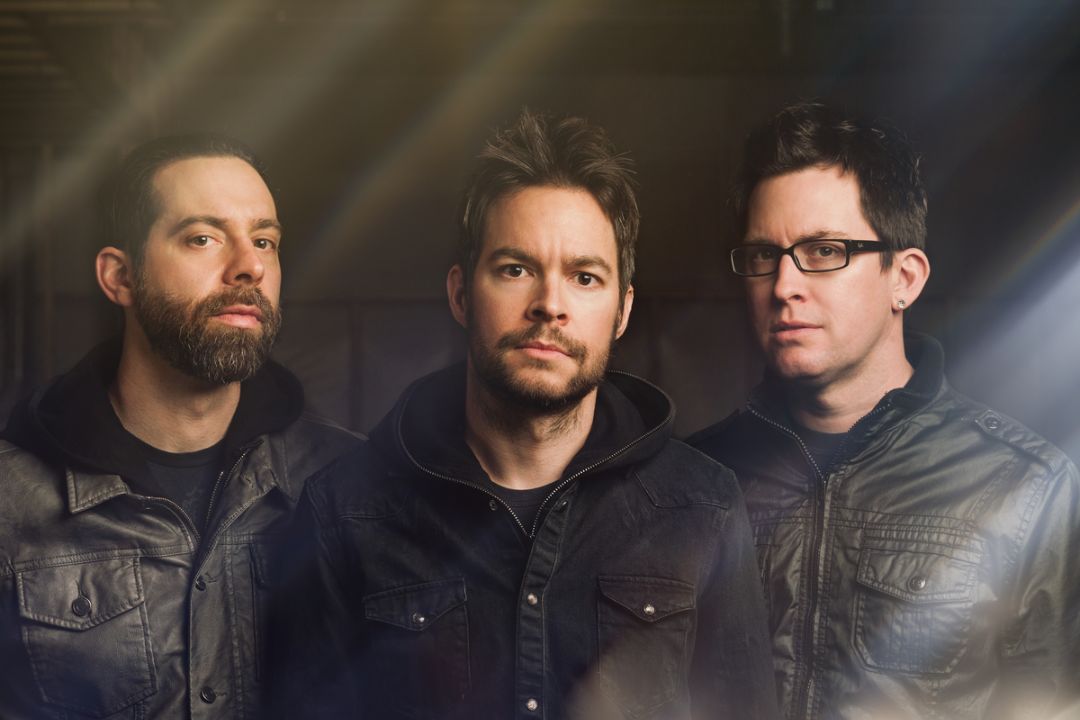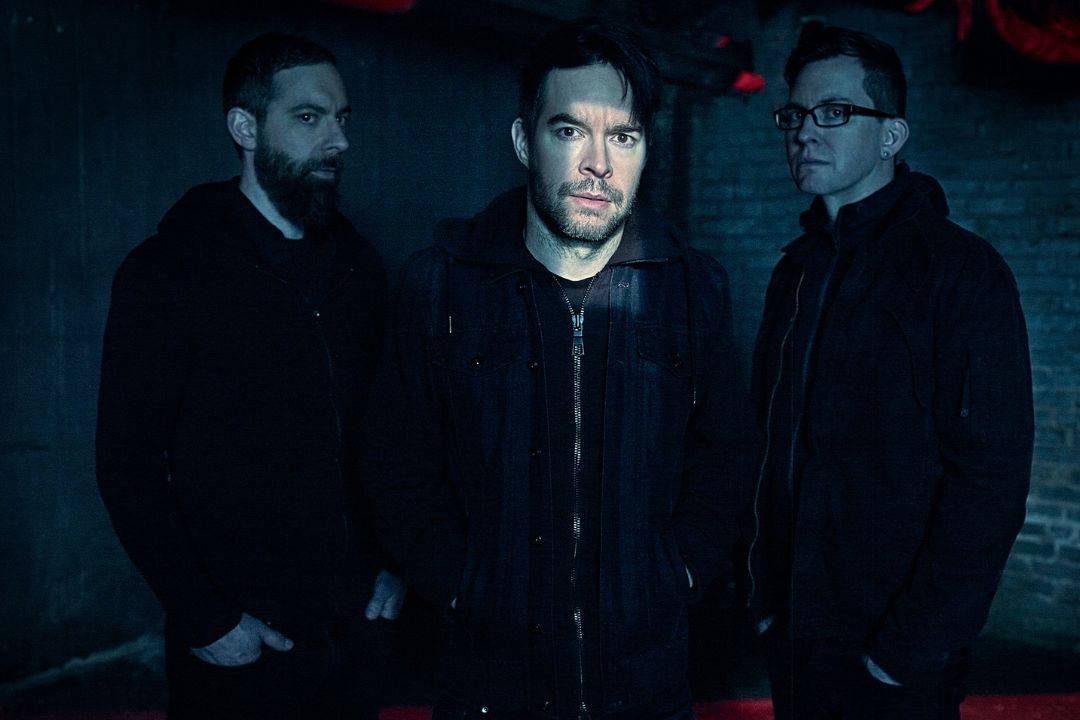The American rock group Chevelle was founded in 1995 in Grayslake, Illinois. The band has amassed a sizable and devoted fan base over the years and has published a number of popular albums and singles.
Even though Chevelle’s music is frequently referred to as heavy and aggressive, the lyrics tackle more complex themes and issues. As a result, many fans have questioned the band’s views on religion and spirituality.
This article will examine the claim that Chevelle is a Christian band by reviewing the band’s background, songs, and public comments on the subject.
Is Chevelle a Religious Band?

Given Chevelle’s intensity and frequently dark undertones, it’s not a surprise that many fans and critics have questioned the group’s religious views.
Some people have suggested that the band’s songs, which frequently deal with themes of loss, solitude, and redemption, might reflect a Christian viewpoint. Others argue that the lyrics of the band are rather vague, representing a more personal or spiritual viewpoint rather than a specific religion.
Let’s dive into the proper analysis, shall we?
History & Background
Three brothers, Joe Loeffler on bass guitar, Sam Loeffler on drums, and Pete Loeffler on vocals and guitar, founded Chevelle in 1995. The band immediately established a following on the Chicago music scene, with its early sound primarily influenced by alternative and post-grunge artists of the day, such as Tool and Soundgarden. The hit track “Mia” from Chevelle’s debut album, “Point #1,” was released in 1999.
The band released several more successful albums over the following few years, including the double-platinum “Wonder What’s Next,” highlighted by the double-platinum hit “The Red,” platinum “Send The Pain Below,” platinum “This Type Of Thinking (Could Do Us In),” and gold “Vena Sera.”
Chevelle has changed rock music as a tried-and-true outlier throughout its career. They have nearly 1.7 billion global streams, 11 number-one singles, and sold-out tours throughout the world, to their name.
The band’s sound has been characterized as a hybrid of hard rock and alternative, driven by Loeffler’s distinctive, expressive vocals and powerful guitar riffs. In addition to their success in the rock world, Chevelle has also developed a fan base in metal and alternative scenes and has done a significant amount of domestic and foreign touring.
Religious Beliefs & Inclinations
Although Sam Loeffler claimed they were Catholic in a remark on their Wikipedia page, the band does not identify as a Christian band. According to them, they separate their religious beliefs from their music.
The band admitted that their first record company, under which they published the album “Point #1,” was Christian, but that was only a coincidence as the label was the first to give them a good offer. They also did not stay long under that record label.
Analysis of Lyrics & Themes
“The Clincher”
One of Chevelle’s most controversial songs is The Clincher from the album This Type Of Thinking (Could Do Us In), released in 2004. According to drummer Sam Loeffler, the song is about claustrophobia and the fear of being buried alive.
These are the limits when one’s buried
This body’s left the soul
Could we have known
Never would I, helped to nail down
Careful of drifting off
Now losing taste and touch
Turning a pale blue leaning in to say
This body’s left the soul
The brain needs oxygen
Due to lyrics like “helped to nail down,” which alludes to the crucifixion, many people continue to assume that the song is the band’s interpretation of The Passion of Christ. Some people believe it to be a song about one of the men who helped to nail Jesus on the cross and later regretted their actions. It mentions a person in suffering, and the references to claustrophobia might be related to the fact that Jesus was buried in a tomb.
And truly, on a second examination of the lyrics, you start to see the signs. But it also could be a case of seeing things (that are really not there) when you look hard enough.
“The Red”
The Red is the group’s fifth song and lead single from Wonder What’s Next – their major label debut. The main focus is on dealing with anger and frustration. The music video was even set in an anger management seminar.
They say ‘Freak’
When you’re singled out
The red
Well, it filters through
So lay down
The threat is real
When his sight
Goes red again
The narrator seems to be writing from two perspectives. Both the victim and the one who is furious. The narrator being with a victim and fleeing from the enraged individual is the scenario that seems the most likely, though.
The song, according to many, is about the brothers having to deal with their father’s violent outbursts. Some still believe that “the red filters through” is a pointer to the blood of Jesus and how it helps to deal with anger management, which we frankly do not see.
“Point #1”
If there is a song of Chevelle’s that should be about Christianity, it has to be Point #1 as it is the key song in an album of the same name that won a GMA Dove Award back in 2004.
It seems I’ve gained the world but have nothing,
To keep tabs upon this loss isn’t wasted time,
Face opportunities to recognize now we have the time,
Rebuke, don’t choke on this twisted dream
‘Cause he’ll say pay for it,
The whole sum,
Or magnify pain,
Is point number one
The song is about spirituality because many religions have that story of “magnifying pain and paying the full price”. But beyond that, you could see the theme of salvation. How the narrator feels as though they have lost everything, yet how fortunate they are to have someone who will make up for them—this is the whole essence of religion.
Of course, the lyrics could very much point to another theme or message as Chevelle is known to be cryptic and smart. But you cannot deny the theme of salvation in this being intentional. The song was one of those they released under a Christian label in their early years.
“Endlessly”
“Niratias,” which translates as “Nothing Is Real and This Is a Simulation,” is Chevelle’s most brutal and provoking album to date. NIRATIAS is regarded as a concept album and explores issues including intergalactic travel, distrust in authority figures, loss, and the past. Endlessly was released in November 2020 as a sneak peeks into the album.
“This silent sulking
Time is up
Unearth the movement to breathe in full
‘Cause this depends on his demands
All this time felt slow
We’re alone, underground
Where we’ll grow endlessly”
The album was finished just around the end of the global lockdown and the effects of the pandemic became apparent in a lot of industries. Hence, a lot of people fingered that as the inspiration behind the song. The lyrics do seem to have such pointers.
The narrator seems to be reflecting on the loneliness and quietness caused by a separation or sort of distance. There are no subtle or explicit references to Christianity or the Christian faith.
Overall, you get the feeling that Chevelle is intentional about making their songs relatable and open to any interpretation. Some blogs referred to them as Christian reconstructionists and believed they left hidden “easter eggs” (Christian references) within their songs.
There is no denying that initially, they might have been a lot bolder about the religious pointers within their lyrics, but they seemed to have dried up over the years. Either way, Chevelle has paid their dues and deserves all the flowers they can get.
Is Chevelle a Christian Band?

After considering all the factors and evidence highlighted above, we simply cannot call Chevelle a Christian band.
We believe that there is a significant difference between a Christian rock band and a rock band whose members are Christian. Chevelle’s case is very clearly the latter.
None of their songs explicitly and unmistakably mention the Christian faith. The majority of the songs in their discography deal with topics that are not religious. Although they have put out quality music throughout the years that has undoubtedly influenced the lives of many people across the continent, that alone does not qualify them as a Christian band.
Is Chevelle a satanic Band?

There is no clear intention for their music to be demonic or to further satanic doctrines, but rather to explore universal themes of love, grief, and redemption on a regular basis. Therefore, calling Chevelle a satanic band is unfair and wrong.
Chevelle’s music generally has a secular tone and deals with actual human issues, which is clearly insufficient to label the group as being Satanic.
Conclusion
Regardless of how one feels about Chevelle’s music, it is undeniable that they have produced a strong and influential body of work that has connected with audiences from diverse backgrounds.
We would like to know your opinion on the subject. Is Chevelle a Christian band? Do you agree with our submission or do you have any further reasons that make you believe otherwise?
Let us know in the comments!

Like most bands, they are neither christian nor satanic. Their lyrics deal with personal issues. Loss, struggles, death, complexities of life, etc. Great band and great music. But not a source of christianity nor of evil.